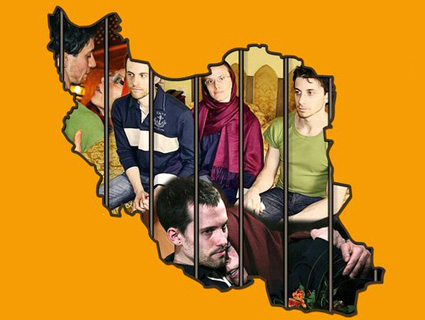
<a href="http://www.shutterstock.com/cat.mhtml?lang=en&search_source=search_form&search_tracking_id=aFSrMjHUpRwJzmPxjrdKrg&version=llv1&anyorall=all&safesearch=1&searchterm=person+writing+a+letter&search_group=&orient=&search_cat=&searchtermx=&photographer_name=&people_gender=&people_age=&people_ethnicity=&people_number=&commercial_ok=&color=&show_color_wheel=1#id=145071616&src=44sXmhuAsr6SB07tgckfzQ-1-0">Tshyun</a>/Shutterstock
This story first appeared on the TomDispatch website.
![]() [Editor’s Note: Many publications have advice columnists, but none has our old friend Colonel Manners (ret.), whose experience in military and surveillance matters is evident from his impressive CV (unfortunately, a classified document). His assignment: to answer questions from Americans puzzled by the abstruse intricacies of the American way of war and by the etiquette, manners, and language of the arcane national security world of Washington. Here is a sampling of his recent correspondence.]
[Editor’s Note: Many publications have advice columnists, but none has our old friend Colonel Manners (ret.), whose experience in military and surveillance matters is evident from his impressive CV (unfortunately, a classified document). His assignment: to answer questions from Americans puzzled by the abstruse intricacies of the American way of war and by the etiquette, manners, and language of the arcane national security world of Washington. Here is a sampling of his recent correspondence.]
Dear Col. Manners,
I’m a 17-year-old high school student with an interest in American records. After college, I’m hoping to land a job with Guinness World Records. So here’s my question: I notice that news reports regularly refer to the Afghan War as the “longest in American history.” How is that possible? The war began in October 2001 and it’s now December 2013. Counting on my fingers, I get 12 years. The Vietnam War began in 1961 and didn’t end until 1975 (with those famous images of helicopters going over the side of an aircraft carrier). That’s 14 years by my count. I’m proud of American records of every sort, but this doesn’t seem like one. What am I doing wrong?
Proud in Toledo
Dear Proud,
You have a lot to be proud of and, as far as I can tell, you have just the right number of fingers. It’s true that, historically, we’ve been numero uno among record-breaking countries. Still, sometimes we get a little overeager. This is one of those cases. Clearly, those claiming the much desired “longest” title for Afghanistan are cheating by counting the Vietnam War as starting in 1964 with Congress’s Gulf of Tonkin resolution, or 1965 when the first official US combat troops entered that country, not in 1961, when significant numbers of armed “advisors” initially arrived.
But don’t lose hope! Let me offer you some future numbers to be proud of. After all, at this moment the Obama administration is negotiating to keep 8,000–15,000 of our troops in Afghanistan as trainers and to hunt al-Qaeda until 2024 (“or beyond,” as some reports say). If, despite the machinations of that country’s emotionally unhinged president, they succeed… well, you can do the math yourself. That’s a 23-year war, so put it in the American record books—and by a long shot.
But don’t stop there. After all, the US fought the Soviets in a fierce proxy war in Afghanistan from 1979 to 1989. I don’t know Guinness World Records rules, but if that decade is admissible, you’ve just left the 30-year war of the Vietnamese against the French and the Americans in the trash heap of modern records, and the European Thirty Years’ War of the seventeenth century in the dust. I won’t claim that somewhere there hasn’t been a longer war, but this would still be one for the global record books. And keep in mind that all of this has taken place in the landlocked backlands of the planet, a place most Americans couldn’t have located on a map before 1979.
Or let me put it this way and be a proud grandpa while I’m at it: my granddaughter Edna was born in October 2001. Before 2024, if all goes well, she could have at least three tours of duty in Afghanistan! So I say: 2024 or bust!
Yours in American Pride,
Col. Manners
Dear Col. Manners,
What’s up with the Obama administration and Afghanistan? If even Afghan President Hamid Karzai doesn’t want us in his country, and if, as he said recently, he still doesn’t “trust” us, why should we want to stay? And if his compatriots are now ready to play the role of the Taliban and bring back stoning to death as a punishment for married adulterers, can you tell me: What is it that keeps us there?
A Puzzled Ohioan
Dear Puzzled,
 Be puzzled no longer. The answer is simple. Just ask yourself: Who wants to be the president to “lose” Afghanistan? Not Barack Obama, I’ll wager. And keep in mind that, whatever the fears of presidents, the globe’s great power can’t be losing countries anyway. It makes for nasty domestic politics and a messy planet. If you lose one country, who knows how many others you might misplace in the ensuing panic?
Be puzzled no longer. The answer is simple. Just ask yourself: Who wants to be the president to “lose” Afghanistan? Not Barack Obama, I’ll wager. And keep in mind that, whatever the fears of presidents, the globe’s great power can’t be losing countries anyway. It makes for nasty domestic politics and a messy planet. If you lose one country, who knows how many others you might misplace in the ensuing panic?
Note as well that we’ve already been on an ominous, more-than-six-decades-long losing streak: there was China in the 1940s, half of Korea in the early 1950s, all of Vietnam in the 1970s, and now possibly Afghanistan. (Somehow, Iraq didn’t count. I’m only speculating, but it might have been misplaced from the start, which would help explain why no one noticed when we finally left.)
Sincerely yrs,
Col. Manners
***
Dear Col. Manners,
I’m sorry to bother you and embarrassed to ask you about this, but I was confused by something the other day. According to a spokesman for Afghan President Hamid Karzai, Secretary of State John Kerry offered to deliver a letter of apology, possibly signed by President Obama, for “past mistakes” made in the Afghan war, including the killing of civilians. It was to be part of ongoing negotiations for a future security pact. Soon after, National Security Advisor Susan Rice said, “No such letter has been drafted or delivered. There is not a need for the United States to apologize to Afghanistan.” Not long after that, Kerry, too, swore that no apology had ever been on the table or was forthcoming.
If I make mistakes, I apologize. What’s wrong with the US government doing the same?
Confused and Apologetic in Tucson
Dear Confused and Apologetic,
I’m glad you asked. The political etiquette of apology is straightforward enough and easy to grasp. Individually, we are expected to apologize for mistakes we make or pain we cause others. That’s a matter of human decency. Collectively, however, Americans don’t apologize. That is a reality all but written into the Constitution and a matter of American decency.
Regular countries, like regular people, are obliged to say they’re sorry. You invade your neighbor, for instance, and an apology is indeed in order. With an exceptional superpower, however, it’s another matter. For Washington to apologize, whatever the issue, would be like the guest of honor at a formal dinner arriving in jeans. Nobody would ever forget it or think well of you again. In fact, any great power that apologized would experience an instant devaluation of the currency that every pundit in Washington agrees is the single most important on this planet: credibility. You may not be able to bank it, but you sure can lose it.
Admittedly, we don’t know the details of what our secretary of state might have said or promised to the Afghan president, but if it was an apology, then he stepped over a real “red line” in American politics.
An apology to the Afghans would be a) absurd (it’s the Afghans!) and b) humiliating (it’s the Afghans!). American credibility would suffer a blow from which it would be unlikely to recover. And imagine what a post-apology world would be like: no country could ever again count on us to travel enormous distances, invade their land, and occupy them.
Yours unapologetically,
Col. Manners
***
Dear Col. Manners,
Recently, I saw the following headline in the Washington Post: “US should be wary of Iran’s goal to dominate the Middle East.” It was atop an op-ed by former Senator Joe Lieberman. Still, I think you’d agree that it’s impossible to imagine the opposite headline—”Iran should be wary of Washington’s goal to dominate the Middle East”—anywhere in the Post in this century.
There is, I think, a pattern here. For instance, headlines and stories about “the Iranian nuclear threat” have been commonplace in our press and the phrase is still being used, even in the wake of the recent interim nuclear agreement between that country, the US, and other powers. At the moment, Iran has zero nuclear weapons. Everyone agrees on that. The US has a nuclear arsenal of approximately 7,700 weapons, enough to end life on Earth and several other planets, but when was the last time you saw a headline with “the US nuclear threat” in it? Israel has an estimated arsenal of 80 to 200 nuclear weapons. (“The Israeli nuclear threat”?) Pakistan, which may have sold the makings for such weaponry to North Korea and Libya, and is reportedly prepared to sell nuclear weapons to Saudi Arabia on a moment’s notice, has 100 to 120 nuclear warheads and threatens India (as India threatens Pakistan). Oddly though, I can’t remember seeing a “Pakistani nuclear threat” headline anywhere or, say, any discussion whatsoever about putting sanctions on Pakistan lest, in a future act of proliferation, it ships weapons to Saudi Arabia or on that Kingdom lest it receive them.
Don’t you feel our media should be more evenhanded?
Progressive from Pittsburgh
***
Dear Progressive,
As a start, do me a favor and climb down from your soapbox for 30 seconds. I’m sure you write in all sincerity, but let me say that it’s obvious your beliefs blind you to reality.
Let’s just take that “nuclear threat.” Had the Iranians gotten there first and invented nuclear weapons, as we did in 1945, who would complain? Or had they, for instance, vigorously pursued the nondisruptive Israeli approach of refusing either to acknowledge or deny the nuclear arsenal they were building, that, too, would be a different kettle of fish. After all, if you think about it, isn’t that the height of politeness? The Israelis have been so committed to their particular form of nuclear privacy, to calming, not roiling, troubled waters that if you even try to expose their arsenal, they are ready to jail you for the duration.
The Pakistanis are a more complex matter. Still, had Iran taken their approach and openly espoused a nuclear program—and (almost openly) its proliferation—the world might not have been happy, but a “threat,” no. The Iranians, however, had the temerity, the gall, the chutzpah to launch a nuclear program, refuse to shut it down, claim they weren’t building a bomb, and then—despite a two-decade drumbeat of Israeli and American predictions that such a bomb was on the horizon—not build it. What functioning international system could stand up to such prevarication or plan on the basis of it? It represents an extreme form of impoliteness and no one, not even a “progressive from Pittsburgh,” should claim that it isn’t a “threat” to the whole system of international nuclear etiquette and manners built up since 1945. It is nothing less than a existential threat to the American way of manners.
Sincerely,
Col. Manners
***
Dear Col. Manners,
In a recent New York Times piece by James Risen and Laura Poitras, I noted that the National Security Agency is not satisfied simply to scoop up most global communications. Its top officials dream of expanding their surveillance and have launched a four-year plan that should chill anyone to the bones. The reporters describe the agency’s long-term goal as “being able to collect virtually everything available in the digital world.” Or as one of the NSA’s programs, Treasure Map, puts it: “any device, anywhere, all the time.”
I couldn’t help thinking of the villain in your typical James Bond film who, having trussed 007 up as preparation for a hideous fate, promptly offers him an elaborate description of his plans for global conquest. Doesn’t this strike you as overreach of a major sort, Col. Manners? Is there no value at all to global privacy anymore?
Sleepless (with worry) in Seattle
Dear Sleepless,
I understand where you’re coming from, but you’ve got the wrong angle on this one. It’s neither a global nor a personal nightmare and it’s nothing to lose sleep over. The NSA story is, in truth, an incarnation of what’s best in the American pioneering spirit, whether in Silicon Valley or Fort Meade, Maryland. Historically, we as a people have always been restless, inspired by the urge to see around the next bend in the river, by the belief that there might be gold over the next set of hills. It’s what’s led us to change the world.
Think of the NSA’s tale, then, as a modern incarnation of an American spirit of Manifest Destiny. That agency’s officials are driven by a dream: that there’s surveillance gold just beyond the horizon; in, that is, Germany, whether the chancellor’s office or anybody’s home or, for that matter, Afghanistan, Burma, China, or San Diego. That urge is both pioneering and heartwarmingly inclusive. No one is to be left out of the NSA’s dream for a better-overheard world.
It’s true that beyond those unexplored digital hills there may sometimes only be fool’s gold, but the urge is commendably in the American frontier spirit; and the only casualty—privacy—is (assuming you have nothing to hide) all in your mind and completely chimerical.
Yours manifestly,
Col. Manners
Tom Engelhardt (who lent Colonel Manners a hand) is a co-founder of the American Empire Project and author of The United States of Fear as well as a history of the Cold War, The End of Victory Culture, runs the Nation Institute’s TomDispatch.com. His latest book, co-authored with Nick Turse, is Terminator Planet: The First History of Drone Warfare, 2001-2050.
Follow TomDispatch on Twitter and join us on Facebook or Tumblr. Check out the newest Dispatch Book, Ann Jones’s They Were Soldiers: How the Wounded Return From America’s Wars—The Untold Story. here.
















